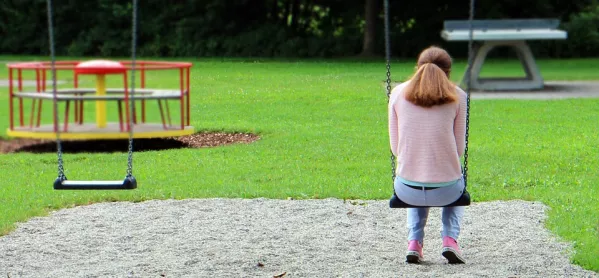You can be surrounded by up to 34 children, all of whom are busy, engaged and constantly chattering. You can have an teaching assistant working in your classroom. You can even have a large group of colleagues.
And yet, most days in teaching, it can feel as though you’ve not spoken to an adult at all.
By playtime, it's a struggle to even get a drink and go to the toilet, let alone talk to someone about how the lesson went. Lunchtime can be just the same: make that call, collect the materials for the afternoon, mark a couple of books and maybe just consume the sustenance needed to keep you going.
There is no doubt that teaching can be a lonely, lonely job.
Opinion: 'Teaching is a marathon, not a sprint'
Quick read: Five signs that you're close to teacher burnout
Pupil wellbeing: Mental health crisis a 'slow-motion car crash', say teachers
While there are people all around, so much of teaching is a mental activity, which can make it feel as if you are on your own, spinning numerous plates before you, with little or no support. Senior staff often make it worse by sending requests via email. Fill in this form, tick this box, put this into your diary and so on.
The classroom can often feel as though it’s closing in on you like a straitjacket. And then, add to all this the fact that teaching is tiring beyond belief.
Come the end of the day, there is no respite. There are parents to see, meetings to attend and then on to other isolating activities: marking, form-filling and lesson-planning for the next day.
Socialising, of course, takes a back seat, confined to weekends and holidays. Many, many days can pass when a teacher has no meaningful conversations with another adult. It’s hard to believe but it’s true.
For far too many teachers, this story is a familiar one. Teachers who have excellent interpersonal skills often have little time to use these with adults. Often, they feel like they exist in a vacuum. The feelings this promotes can cause teachers to doubt their own ability, and can affect their mental wellbeing.
Senior teachers can help and colleagues need to do their bit. Leadership must ensure that they talk to all staff regularly, not just about work. And they must actually talk instead of leaving it all to the click of a button on a computer. They should also ensure that staff meetings are not just about information-giving but instead about team-building.
Individual teachers must get out of their classrooms, into that staffroom, and recognise that conversation is a two-way process. Teachers should ensure that, at least once, every single week, they do something positive for themselves.
Above all, they must remember that teaching is only a job.
Colin Harris led a school in a deprived area of Portsmouth for more than two decades. His last two Ofsted reports were “outstanding” across all categories




